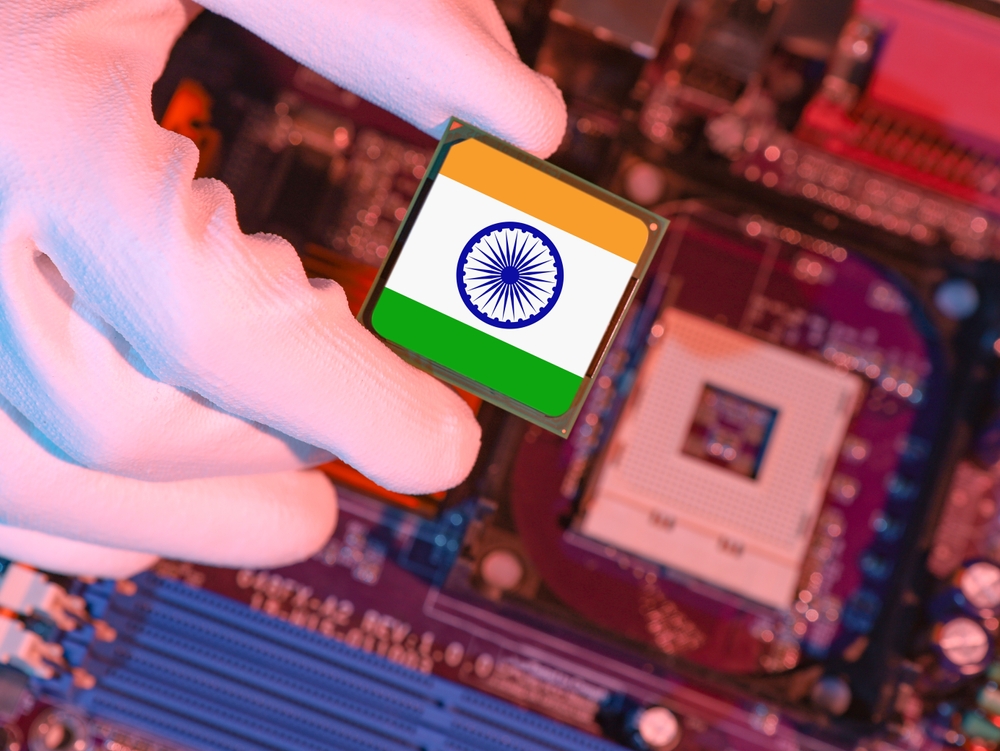As the UK braces for its general election tomorrow, the semiconductor industry finds itself at the crossroads of political pledges and economic realities.
Despite the pivotal role that technology and manufacturing play in the nation’s economic aspirations, current political discourse and policy plans suggest a looming struggle for this sector.
Immigration Barriers and Talent Shortages
A major concern among British chipmakers is the potential impact of proposed immigration reforms on their ability to attract and retain skilled talent. Both the Conservative and Labour parties have pledged to reduce net migration, a stance that could exacerbate the existing skills shortage in the semiconductor industry. According to Rodney Pelzel, Chief Technology Officer of IQE, “Talent is the bottleneck for everything that we do.” The industry’s reliance on highly specialised skillsets means that domestic talent pools alone cannot meet demand, and restrictive immigration policies threaten to stifle growth and innovation.
The government’s strategy to address these issues appears insufficient. The Conservatives’ promise to invest in the technology sector and Labour’s proposed regulatory framework may not compensate for the immediate need for skilled foreign workers. This is underscored by the removal of engineers from the UK’s shortage occupation list, a move that could hamper efforts to fill critical roles in chip design and manufacturing.
Economic and Strategic Implications
The semiconductor sector is critical to the UK’s economic and strategic interests, encompassing everything from smartphones to weapons systems. The Tory government has identified semiconductors as one of the five technologies essential to Britain’s future as a tech superpower. However, their financial commitment—just £1 billion—is dwarfed by the tens of billions allocated by the US and EU for similar initiatives.
This funding gap highlights a broader issue: the UK’s semiconductor policy has been criticised for lacking direction and depth. For example, Graphcore, a promising British chip designer, has struggled to secure adequate support compared to its US and EU counterparts. “Graphcore’s exclusion from the exascale project is the equivalent of the US government leaving Intel out of the US CHIPS & SCIENCE Act,” noted the Centre for European Analysis.
Manufacturing Sector Perspectives
The manufacturing sector, a cornerstone of the UK economy, shows a clear preference for Labour over the Conservatives. A poll by Medius revealed that 47% of manufacturing leaders back Labour, compared to 26% for the Conservatives. This preference is driven by Labour’s comprehensive industrial strategy, which includes significant investments in green technologies and industrial clusters, as well as extensive workers’ rights reforms.
Despite some recent growth in manufacturing, the sector faces persistent challenges such as high energy costs, inflation, and supply chain disruptions. Labour’s proposals to create a National Wealth Fund and invest in key industries like automotive and steel are seen as crucial steps towards addressing these issues and fostering long-term stability and innovation.
Digital and Data Policies
Both parties have outlined ambitious plans for digital infrastructure. Labour’s manifesto proposes turning the Department for Science, Innovation and Technology into the digital hub of the government, promoting AI adoption, and ensuring nationwide 5G coverage by 2030. The Conservatives aim to increase R&D spending and maintain tax reliefs to spur innovation, with a focus on gigabit broadband and standalone 5G.
However, industry insiders remain sceptical about the real impact of these pledges. The Conservative emphasis on reducing regulatory burdens contrasts with Labour’s regulatory framework aimed at boosting innovation and high-quality jobs. This divergence reflects a fundamental debate over how best to foster a thriving tech and manufacturing environment amid economic and geopolitical challenges.
Future Outlook
As the UK heads to the polls, the semiconductor and manufacturing sectors find themselves at a crossroads. The election’s outcome will significantly influence the country’s ability to compete on the global stage. While Labour’s proposals offer a detailed strategy for industrial revitalisation, the Conservatives’ focus on innovation and deregulation also promises benefits. However, the underlying issue of talent acquisition remains unresolved, posing a substantial risk to future growth.
The election will determine whether the UK can effectively navigate these challenges and realise its ambition to become a global tech leader. Industry leaders and workers alike will be closely watching the results, hoping for policies that will not only address immediate needs but also pave the way for long-term success in the ever-evolving technological landscape.
Thousands of senior engineers and procurement professionals subscribe to our LinkedIn Market Intel newsletter – get yours here
For more help with looking at supply chain options, contact Astute Electronics





